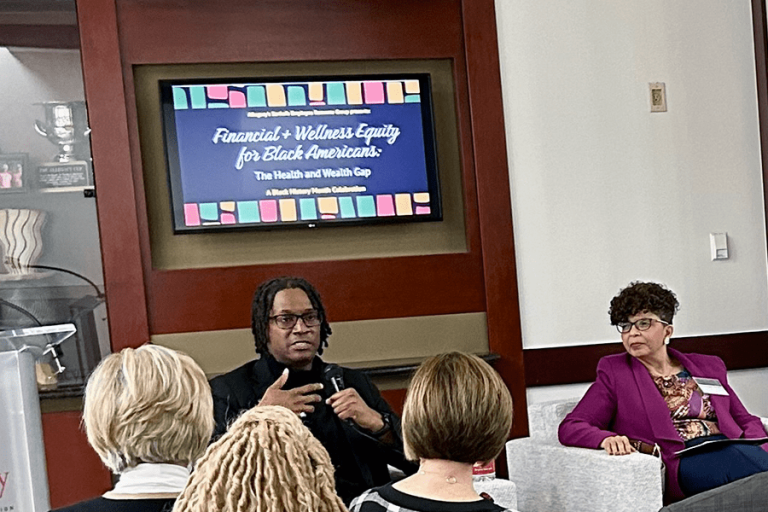Roderick Lewis Discusses Financial and Wellness Equity for Black Americans

In a panel discussion hosted by the Sankofa Employee Resource Group at Allegacy Federal Credit Union, Executive Director of Inclusive Excellence at the Wake Forest School of Business Roderick Lewis joined other local thought-leaders in business and health equity to discuss the causes and implications of the health and wealth gap experienced by Black Americans.
A Twi word from the Akan Tribe of Ghana that loosely translates to “go back and get it,” the Sankofa ERG is a newly formed employee group committed to a mission of equity and understanding across the social determinants of health. On February 13, the panel met to provide context and catalysts for positive social change around these topics for historically underrepresented groups.
“This is a great opportunity to have some thought-provoking conversations on two key issues by which Black Americans as a whole are negatively impacted,” Lewis said. “It’ll also provide pathways to think about the myriad stakeholders and resources in society that would be needed to reduce these inequities in the long-term.”
The event was highlighted by conversations surrounding the necessity for access to education and financial literacy, the state of minority representation in executive leadership and the role of business schools and other institutions in facilitating diversity, equity and inclusion initiatives at the corporate level. Lewis gave multiple statistics to set the stage for understanding the current financial inequities faced by Black Americans, including that a mere 20 occupations account for 60% of the $220 Billion racial wage disparity between Black and white Americans.
“These issues weren’t created overnight, and they won’t be solved overnight,” Lewis said. “The more awareness that people from all demographic groups in the U.S. have on the historical antecedents of these present-day maladies, the better informed they will be about supporting programs and initiatives designed to address the inequities.”
Regarding the role of institutions in facilitating meaningful and scalable DEI, Lewis noted that the research and scholarship done by faculty, as well as the curriculum in place, are integral to shaping the mindset of future business leaders and challenging the innate or behavioral biases that cause resistance to such initiatives.
At the Wake Forest School of Business, Lewis is tasked with spearheading the development and implementation of school-wide strategies to promote diversity, equity, and inclusion, geared toward fostering a global and inclusive community. His many impactful contributions include the development of an “Anti-Racism & Gender Equality Scorecard” which aids career centers and their corporate partners in evaluating an organization’s DEI efforts to improve practices that influence the inequities faced by historically disadvantaged groups.